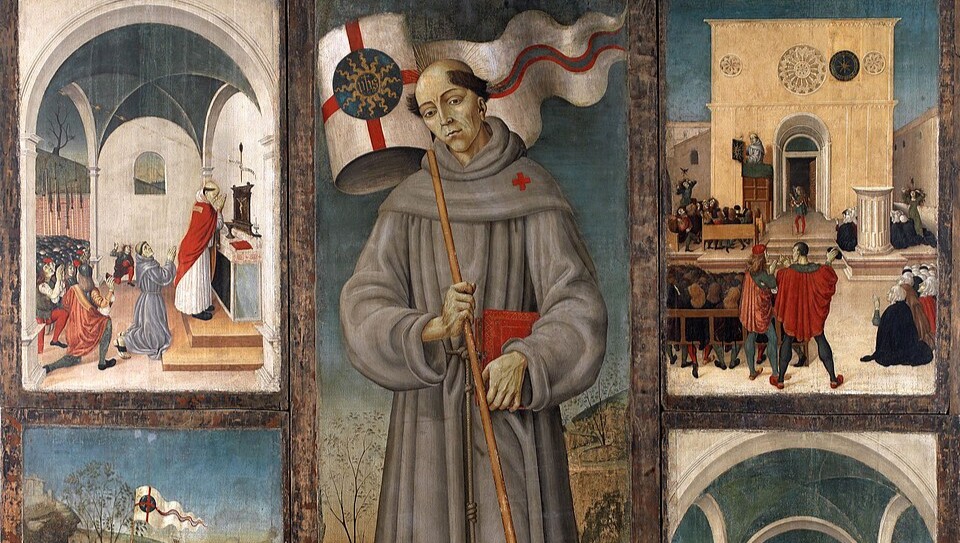One of my favourite essays is Vaclav Havel’s ‘Power of The Powerless’ in which he gives the example of the Czech grocer obliged to place a sign in his window:
‘Workers of the world unite’
Havel asks if this sign shows the grocer’s enthusiasm for socialist principles or even his huge desire to show people his faith in his beliefs. No, answers Havel; what it shows is nothing about the content of the sign, but what this implies about the shopkeeper or his loyalty. In linguistics, this was noted by J. L. Austin, who developed the theory of speech acts meaning that words are not merely for communication but also to require some sort of an ‘act’ or ‘response’ from the listener. In uttering a sentence, the speaker with an associated intention performs a linguistic act to the listener. The shopkeeper is really not interested in the worldwide socialist movement, but he is acting out his ‘loyalty’ to the correct ideology. This is the real nature of the ideologue and it does not have to be on the right; it can encompass any politics or any viewpoint. Plato was a critic of what he saw as ‘sophistry’ or ideological speech, which—when examined—is unable to answer its hidden contradictions or logical errors. In his dialogue ‘Gorgias’ Socrates shows how the question-and-answer method is superior to sophistry as it enables one to get to the truth. Therefore, one’s position on a topic must be open to this analysis, to constant doubt. Dialogue leads to truth and sophistry to power.
In the default expressions like ‘fascist’, ‘the far right’ there is the all inclusive ‘woke’
The recent assassination of Alexander Dugin’s daughter has seen a consistent mantra from the Western media; Dugin described as an ‘ideologue’. It is one of those phrases which epitomize the “corruption” of language, for—as language develops—certain terms become sacrosanct, unexamined, plagiarized. The liberal left can use all encompassing phrases to escape thoughtful intellectual analysis; therefore, in the default expressions like ‘fascist’, ‘the far right’ there is the all inclusive ‘woke’. The term ‘ideologue’ is one of these captive phrases. It can be juxtaposed with the ‘principled argument’ term which sees through ideological language, precisely explains terms and accepts criticism. Therefore, the application of the question is whether or not Dugin and his work is ‘principled argument’. However, to face this analysis, we must be open to cultural nuance; we cannot apply universalist, relativist perspectives or language. Within dialogue, a sign of ideology or the ‘ideologue’ is the use of ad hominem arguments to support an argument. This is common within parliamentary debate where civil servants often exchange personal vitriol aimed to win arguments. My first encounter with Dugin was observing a televised debate between Henry Levy and Dugin in Holland in 2019. Within ten minutes of the debate starting, Levy had mentioned the Nazis, claiming Dugin was a descendant of their thinking. Then he lambasted Dugin for liking Spengler and Nietzsche – both of whom were ‘racist’ and ‘xenophobic’. There is no racist or xenophobic thinking in any of their works. The entire debate was Dugin attempting to explain how, within cultures, there are different paths and thinking. If you had jetted in from Mars, you would have thought Levy the ideologue and Dugin the gentle articulator of ideas. Nevertheless, this has to be said in the shadow of Dugin’s comments to ‘kill, kill, kill’.1 Ukrainians in 2014 or ‘Ukraine has to be vanished from earth or rebuilt from scratch’.2 This is the essential dichotomy of Dugin’s thought. Between the articulate setting out of a philosophical position in The Fourth Political Theory and his views on Eurasianism in The Basis of Geopolitics, there lies a contradiction.
Dugin follows the view of Jean Baudrillard in seeing the poverty of historicism and ‘end of history’ schema. History did not end in the 1990s as predicted by the liberal ‘end of history’ idea. Baudrillard in ‘The Illusion of the End’ gives a fascinating account of the debunking of the Marxist view of historical progression; history is ending, but only because it has lost its meaning. For Dugin, Russia must set itself against the liberal world, rather than be absorbed into it. It is this exceptionalism, a plurality of cultures, rather than a universalist liberal oneness. Dugin, in his book The Fourth Political Theory argues that ‘There are no stages and epochs, but only pre-concepts and concepts. In modern society time is seen as irreversible, progressive and unidirectional. But this is not necessarily true inside societies that do not accept modernity.’3 Dugin accepts Oswald Spengler’s idea4 of nations or cultures as ‘organisms’; that is, they develop through birth, childhood, maturity and death. Cultures are separated in that they have their own idiosyncratic paths, neither right nor wrong, neither good nor evil. Dugin quotes the Russian philosopher Nicolai Berdyaev’s concept of the ‘New Middle Ages’ in which liberalism ends and is replaced by a return to a civilization based on spirit and mysticism.
The Fourth Political Theory is a concept which replaces the three ‘ideologies’ of the twentieth century; liberalism, communism and fascism. Dugin’s ‘National Bolshevism’ combines aspects of both communism and fascism. Although liberals, such as Fukuyama5, heralded the ‘end of ideologies’, the modern world would appear to dispute this. Liberalism, argues the New Right, becomes an ideology itself- seen in the values and prescriptive policies of globalized markets, liberal cultural values, compulsory ‘human rights’, and the vaulted position of the ‘individual’.
Dugin advocates an ethnic plurality where all ethnicities are tolerated and not a unipolar globalist one
Dugin says that certain elements of both communism and the ‘Third Way’ can be blended into a new philosophy; that the ‘logos’ of the modern world, ever since Plato, has existed in a division of thought, one that excludes the other. From communism can be taken ‘social justice, social solidarity and general holistic attitude to society’.6 Atheism, materialism, cosmopolitanism should be thrown out. From the right and ‘Third Way’ we should dismiss ‘racist and narrow nationalist aspects’. Dugin stresses that it is globalized, universal thinking which is restrictive; he advocates, like Alain de Benoist, an ethnic plurality where all ethnicities are tolerated and not a unipolar globalist one. The emphasis is on a multi-polar world. Dugin places great emphasis on authenticity; the modern world cannot offer authenticity to homo sapiens:
‘In the case of communism, the central subject was class. In the case of the Third Way movements the central subject was either the race or nation. In the case of religions, it is the community of the faithful. The main subject of the Fourth Political Theory can be found in the Heideggerian concept of ‘dasein’.’7
Dasein can be seen as a type of existence which cares for the external world whilst observing an individual’s own truth. This is the opposite of inauthenticity. It means that individuals and nations are free to remove alienation whether social, economic, national, religious or metaphysical. Martin Heidegger’s concept of ‘dasein’ is central to Dugin’s thought. Dugin says this: ‘Unlike other political theories, the Fourth Political Theory does not want to lie, soothe, or seduce. It summons us to live dangerously, to think riskily, to liberate and release all those things that cannot be driven back inside…’8
With Dasein as the subject, Dugin claims that the liberal conception of freedom is ‘freedom from’ and illusory; it ends up in what Sartre called a ‘prison without walls’. There is human freedom, not the freedom of the individual. Dasein also ties the freedom to the state and ‘spatiality’, which he derives from Carl Schmitt’s the Fourth Nomos of the Earth (1950). Schmitt stated that colonialism had created a global social order and that this was disintegrating; a new global order was imminent. This new global order, however, does not represent the liberal diaspora, but an authentic one based on dasein. Therefore, the land appropriation Schmitt talks of to expand and solidify a nation’s culture can be applied, for Dugin, to Ukraine. For Schmitt, ‘Thus nomos is the immediate form in which the political and social order of a people becomes spatially visible’.9
Dugin espouses the concept of ‘Eurasianism’; a belief in the independent entity separated from both Europe and Asia and encompassing the Russian-speaking and also Slavic countries of the former Soviet Union. Therefore, this Eurasian expansion stands alone whilst the “NATO threat” is used as a ‘simulacrum’ for justification. Dugin’s earlier book The Basics of Geopolitics sits in pride of place on Putin’s book shelf, essential reading also for the Russian military and the FSB (The Federal Security Service). In the philosophy of Dugin is the myth of a virtuous Russia under attack from outside, as part of an indivisible ‘Greater Russia’. He speaks of Russia, like Spengler spoke of cultures, as a living organism. It is in the clash of these two theories that Dugin’s views contradict each other; at once in The Fourth Political Theory is a view of ethno-pluralism, a grand tolerance of self-determination and anti-racist statements. In The Basics of Geopolitics is an assertion of revanchist rhetoric, of the great ‘Eurasia’. However, this denies nationhood, denies other states their own dasein. It is not that Dugin is an ideologue but that his written philosophy is contradictory. But within modernity he is right to criticize the hypocrisy of liberalism; for example, a United Kingdom which champions the self-determination of Ukraine, but denies this at home to the Irish Republic. We live in an age of ideological disintegration, in which all utopian schemes have been dashed; Communism, Fascism. Liberalism is now ideology, nihilism and greed.
‘Black Lives Matter’
Today the signs in the shopkeepers’ windows have changed. They now read ‘Black Lives Matter’ or ‘The Rainbow Revolution’. Now the signs are displayed, not only by individuals, they are displayed by governments, institutions, corporates – the Sophists of modernity. These are the new ‘Ideologues’; for they are unexamined thoughts, their real speech act is to demonstrate one’s “loyalty” to the prevailing liberal credo, a type of group therapy. The modern world is bathed in superficial appearances; what Plato meant in his allegory of the Cave where humanity is in the black ideology of ignorance. Mankind must be dragged from the cave to stare into the blinding sunlight of truth. However, Plato’s jailors hold the keys; the keys to youth, to universities, to employment. The modern teenager is blinded by the new ideologues and the media which represent a panopticon of thought. This falsity is coupled with a liberal ideology of right and wrong, good and evil. But the truth is beyond good and evil; the sky has darkened and modernity faces what Blake called ‘endless night’.
NOTES
1 Gideon Rachman, ‘The Global Reach of Alexander Dugin’, Financial Times (22 Aug. 2022), https://www.ft.com/content/7184ab8c-c155-4198-a844-87b9a98d8b9b, accessed 23 Aug. 2022.
2 Ishaan Taroor, ‘The Global Politics of Russia’s Notorious Nationalist Ideologue’ (23 Aug 2022). https://www.washingtonpost.com/world/2022/08/23/ideology-alexander-dugin-global-far-right/, accessed 23 Aug. 2022
3 Alexander Dugin, The Fourth Political Theory (Budapest: Arktos Media, 2017).
4 Oswald Spengler, Decline of the West v2 Perspectives on World History (London: Allen and Unwin,1934).
5 Francis Fukuyama, The End of History and the Last Man (London: Penguin Books, 2012).
6 Dugin, The Fourth Political Theory.
7 Dugin, The Fourth Political Theory.
8 Dugin, The Fourth Political Theory
9 Carl Schmitt, ‘The Nomos of the Earth in the International Law of the Jus Publikum Europaeum’ (New York: Telos Press Publishing, 2006).








